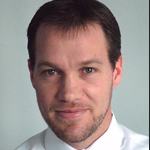 Had a great conversation with Carter Phipps the other day. Carter has been a luminary in the integral/evolutionary world for many years. He is the past executive editor of What is Enlightenment? magazine, (subsequently known as EnlightenNext), one of the best publications ever on the subject of interior evolution.
Had a great conversation with Carter Phipps the other day. Carter has been a luminary in the integral/evolutionary world for many years. He is the past executive editor of What is Enlightenment? magazine, (subsequently known as EnlightenNext), one of the best publications ever on the subject of interior evolution.
 Carter and I come from different lineages in the integral worldspace: he being a student of Andrew Cohen for many years, and me as a student of Ken Wilber. So we have fun gossiping and comparing notes about the state of the integral movement. Is it gaining traction in the culture? How do we most skillfully communicate our views and solutions? What do we know about how integral consciousness shows up, in ourselves and the world at large?
Carter and I come from different lineages in the integral worldspace: he being a student of Andrew Cohen for many years, and me as a student of Ken Wilber. So we have fun gossiping and comparing notes about the state of the integral movement. Is it gaining traction in the culture? How do we most skillfully communicate our views and solutions? What do we know about how integral consciousness shows up, in ourselves and the world at large?
Carter knows the scene as well as anyone. He just finished touring for his new book, Evolutionaries: Unlocking the Spiritual and Cultural Potential of Science’s Greatest Idea. It’s a wonderful book, both as a skilled exposition of the basic thinking behind the ideas of cultural evolution, as well as a overview of many of the characters who are moving the ball in the arena today. (Evolutionaries would be a good choice to give or recommend to a friend who is interested in integral thought.)
Listen to an excerpt below. The full audio is premium content on integrallife.com.
Podcast: Download
Subscribe: Google Podcasts | RSS






What a great discussion, guys. Carter’s book was one of the highlights of my summer. Might have to go back and do a skim myself!
Thank you both for the thought-provoking conversation.
Nice Jeff! This is one of my favorite discussions so far. I really liked how Carter discusses how the “spell of solidity” is breaking down in mainstream culture. Yet, I empathized with your frustration on how this doesn’t add up to a recognition of the evolution of consciousness in culture. “Interiors.” It’s rough. Materialism makes it hard to appreciate the subtleties of interior thought and experience. You might like Jonah Lehrer’s writings in this regard. Proust Was a Neuroscientist and Imagine: How Creativity Works. He really argues for a non-reductionist approach to our “interiors” in a way that is forward and even a bit integral-like in its style (he ends Proust with a note on CP Snow and a new culture where science and the humanities can work together).
The rest of this talk was great. More thoughts to come!
Jer